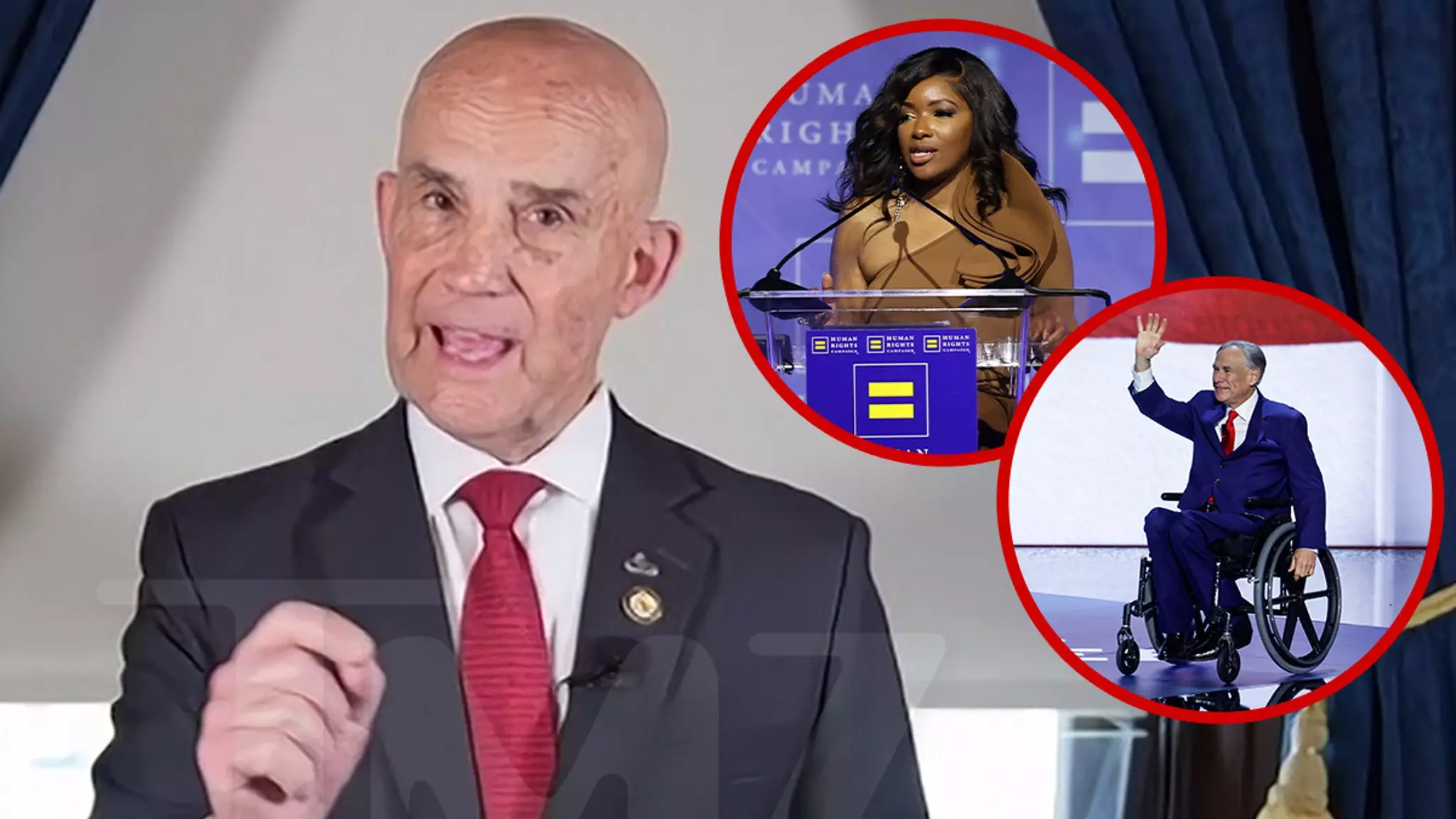The political arena is often rife with contentious commentary and humor that many would deem inappropriate. Take, for example, the recent clash between Congressman Keith Self and Congresswoman Jasmine Crockett regarding remarks made about Texas Governor Greg Abbott’s disability. Self, expressing indignation over Crockett’s jibe—referring to Abbott as “Governor Hot Wheels”—accused her of bullying, discarding her right to criticize while conveniently overlooking his own party’s questionable humor regarding disabilities. This highlights an ongoing irony in political discourse, where certain jokes are deemed acceptable based solely on party lines.
The Double Standards in Political Discourse
In his appearance on “TMZ Live,” Self indicated that while he disapproves of Crockett’s comments, he is reluctant to see Congress censure her, arguing it would backfire on the Democratic Party. This raises a critical point about political rhetoric: the selective outrage leaders showcase when accusations of bullying emerge. It becomes glaringly hypocritical when one considers Self’s unwillingness to condemn former President Donald Trump for mocking a reporter with a disability years earlier. Indeed, it casts a long shadow on the moral authority they claim to have in matters of empathy and respect.
Defending One’s Own
Crockett’s defense of her remarks ostensibly shifts the focus from Abbott’s condition to what she perceives as his political failings. In her view, her quip was a comment on his policies regarding migrant transport and its implications for vulnerable communities, not an attack on his disability. While this distinction is worth pondering, it begs the question: can humor truly be divorced from the context of its delivery? The line between self-deprecation and cruelty can be nebulous in heated political discourse, and when humor becomes a weapon rather than a bridge, the larger implications for communication and respect in society are significant.
The Role of Humor in Politics
Political humor can often act as a double-edged sword—functions to unify a base while simultaneously polarizing the opposition. In this current episode, what stands out is not merely the joke itself but the larger narrative of who gets to laugh and who does not. The implications of this narrative impact the public’s perception of integrity, highlighting a discourse that is anything but inclusive. In the hands of savvy politicians, jokes can serve to distract, energize, or even dismantle reputations, making it critical for audiences to discern intentions behind the humor.
Lessons Learned from Political Ironies
What this incident underscores is the need for a more comprehensive examination of how humor operates within political frameworks. Self’s selective condemnation of Crockett demonstrates how deeply embedded biases impact one’s stance in political commentary. Political figures must navigate their own conduct carefully, recognizing that casual remarks are often recorded and scrutinized for their implications. The real challenge lies ahead—whether Congress can facilitate an environment where humor does not infringe upon dignity but rather enriches discussions that are often fraught with division and hurt. Only time will reveal if this is a catalyst for improved respect among political adversaries or yet another moment in a cycle of irony.

